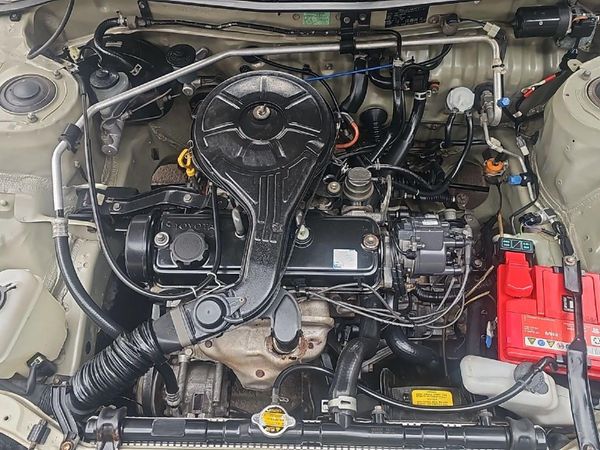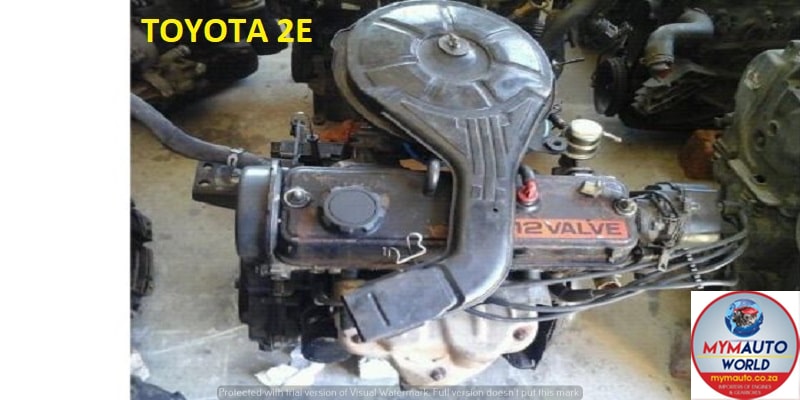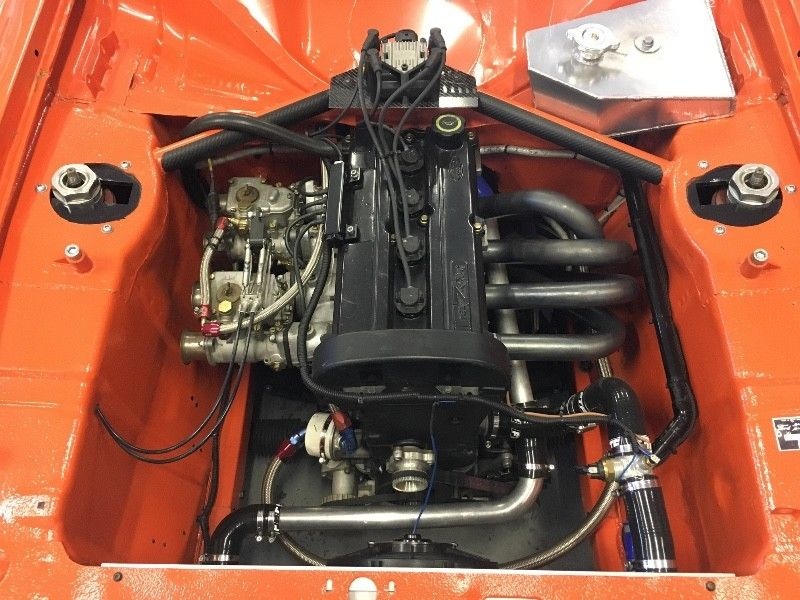Toyota Tazz: The Compact Car That Delivers on Reliability and Fuel Efficiency
Toyota Tazz: The Compact Car That Delivers on Reliability and Fuel Efficiency
Blog Article
Check Out the most up to date Trends in Engine Innovation With Tazz
In the rapidly developing landscape of auto modern technology, Tazz stands at the forefront, highlighting considerable improvements in engine systems that focus on both technology and sustainability. tazz. From hybrid engines that optimize fuel effectiveness to the introduction of hydrogen gas cells, the fads forming modern-day powertrains are not just boosting efficiency but likewise attending to essential ecological obstacles. As the sector proceeds to press borders, it is necessary to consider exactly how these advancements will influence future transportation solutions and the broader effects for international power consumption. What lies in advance in this crucial makeover?
Hybrid Engine Innovations
Crossbreed engine technologies stand for a critical change in vehicle innovation, combining the advantages of internal burning engines with electric propulsion systems. This integration not just improves gas effectiveness but likewise reduces exhausts, meeting significantly strict environmental regulations. By using both energy resources, hybrid engines can optimize performance, supplying power when needed while preserving gas throughout much less requiring motoring conditions.
Current innovations in crossbreed technology include renovations in battery performance and regenerative braking systems. These developments enable higher power recovery throughout slowdown, which can be redirected to help in velocity or power auxiliary systems. Suppliers are focusing on lightweight products and portable layouts to optimize the performance of crossbreed powertrains.
The development of plug-in hybrids has likewise increased the marketplace, allowing vehicle drivers to bill their vehicles using conventional electric outlets. This function usually enables significant all-electric variety, more lowering dependancy on typical gas. tazz. As the automotive industry remains to evolve, hybrid engine technologies are expected to play a critical duty in linking the void in between standard lorries and totally electrical designs, offering a transitional remedy that provides to varied consumer needs and preferences
Advances in Electric Powertrains
The automotive landscape is swiftly advancing, with electrical powertrains emerging as a leading pressure in sustainable transportation. Advances in electrical automobile (EV) innovation are considerably enhancing user, efficiency, and efficiency experience. Secret advancements include renovations in battery chemistry, which have raised power density, lowered billing times, and prolonged general battery life.
Solid-state batteries, as an example, guarantee to change the marketplace by offering higher security and performance contrasted to typical lithium-ion cells. Innovations in regenerative braking systems are making it possible for cars to recoup energy throughout slowdown, contributing to general performance.
In enhancement to battery innovation, electrical motor designs are ending up being extra sophisticated. Advancements such as incorporated motors and advanced thermal administration systems are aiding to enhance power distribution and decrease weight, eventually boosting vehicle dynamics.

Collectively, these advances underscore the dedication to transition towards cleaner, more efficient transport remedies, placing electrical powertrains at the leading edge of automobile development.
The Rise of Hydrogen Gas Cells
Progressively, hydrogen fuel cells are acquiring traction as a viable choice to typical interior combustion engines and battery electric lorries. This modern technology takes advantage of the chemical energy stored in hydrogen, converting it right into electrical energy with an electrochemical published here reaction with oxygen. The key by-product of this process is water, making hydrogen gas cells an eco friendly option with absolutely no exhausts at the tailpipe.

Car manufacturers are increasingly buying hydrogen gas cell technology, recognizing its capacity for long-range applications and quick refueling capabilities that match traditional gas. In addition, sectors such as durable transport and public transportation are specifically fit for hydrogen gas cells, where battery electric solutions may fall short because of weight and variety constraints.
As study and financial investment continue to expand, hydrogen fuel cells are positioned Visit This Link to play a substantial role in the future landscape of clean transportation and energy solutions.
Enhancements in Internal Combustion Engines
Advancements in interior combustion engine why not look here (ICE) technology are changing standard cars to meet modern-day ecological standards and efficiency expectations. Direct gas injection, for circumstances, enables for far better atomization of gas, leading to more full combustion and enhanced power result.
Furthermore, turbocharging has gotten prominence, permitting smaller engines to supply higher efficiency without the weight of larger engines - tazz. This modern technology not only enhances effectiveness but likewise adds to decrease fuel usage. Variable valve timing systems are likewise being refined, making it possible for engines to adapt to various driving problems for boosted torque and responsiveness
Additionally, using light-weight materials in engine building is becoming typical, further boosting fuel effectiveness by reducing overall automobile weight. Engine control units (ECUs) are progressively innovative, allowing real-time changes that optimize performance and exhausts.
These improvements collectively symbolize a pivotal shift in ICE innovation, straightening with global sustainability goals while still giving the performance chauffeurs get out of their lorries. As the sector progresses, these improvements remain to form the future of typical automotive engineering.
Future Patterns in Engine Performance
Significant advancements in engine efficiency are anticipated as makers concentrate on integrating innovative modern technologies to meet rigorous ecological policies and consumer demands. The shift towards electrification, hybrid systems, and different gas is reshaping the vehicle landscape, driving advancements that enhance fuel economy and minimize emissions.
Among the essential trends is the implementation of innovative materials and manufacturing methods. Light-weight composites and high-strength alloys add to decreased lorry weight, hence improving general efficiency. Furthermore, the adoption of turbocharging and variable shutoff timing innovations permits enhanced power output from smaller sized engines, even more improving fuel economy.

Final Thought
Developments in hybrid engine systems, electrical powertrains, and hydrogen gas cells demonstrate a dedication to lowering discharges while enhancing efficiency. Enhancements in interior combustion engines and an emphasis on lightweight materials add to general engine performance.
From hybrid engines that maximize gas efficiency to the introduction of hydrogen fuel cells, the fads shaping modern-day powertrains are not just enhancing efficiency yet additionally addressing important environmental challenges.Hybrid engine technologies stand for a pivotal shift in vehicle modern technology, combining the advantages of inner combustion engines with electric propulsion systems.In addition, turbocharging has actually gained prestige, enabling smaller engines to supply higher performance without the weight of larger engines. Additionally, the fostering of turbocharging and variable valve timing innovations permits for boosted power outcome from smaller sized engines, better boosting gas economy.
Improvements in inner burning engines and a focus on light-weight materials add to total engine efficiency.
Report this page